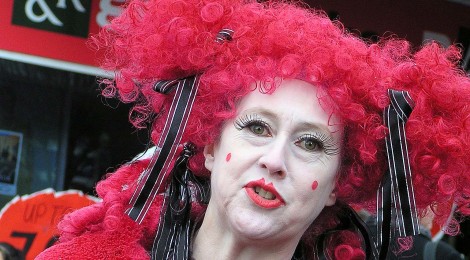
Why Does Hair Curl With Age?
Thick, dark, straight hair has been my luxury since birth. It laid straight, stayed put and didn’t cause problems.
Oh, we had the normal cycles of hair fashion leaning towards curly, when Mom would sit me on a phone book and give me a Tony home perm, but for the most part, it was straight and I grew up practicing my hair styles with straight hair.
My aunt had hair like mine and I thought I would grow old and cut it short as she did in her seventies. Her pixie cut was cute and easy care.
Like most of us, as I aged, my hair grayed, but that was easily solved! The texture and thickness stayed the same for me. Even during and for years after hitting menopause, my hair seemed the same.
Five years ago, I grew it long and it stayed in place, but then I decided to chop it. My hair dresser had casually mentioned that she saw some curling around the nape of my neck, but I paid her no heed.
We chopped it off, from shoulder length straight cut to ear length layered. She styled it and it looked great!
But then, after I washed it for the first time, I couldn’t get it to lay straight. It was wiry and frizzy and just all over the place! I tried air drying it, it looked bad. I tried drying it with a hair dryer while brushing it, it looked really bad. I tried rolling it with a curling iron, and it looked even worse. I tried scrunching it and letting it curl. That was a no go too.
Working on the theory that long hair will have more weight, allowing my styling to once again become manageable, I am growing it back out. In the meantime, my hairdresser straightens it once a month. She showed me another client who used to have straight hair. The woman had Shirley Temple curls! I wasn’t the only one losing their straight hair!
What happened? Why did my hair turn from straight to curly?
As it turns out, there are only theories, no certain knowledge.
Tom Dawson (principle scientist at P & G according to Naturally Curly.com says
“You’d think with something as fundamental as human hair, and the amount of time and money we put into our hair, that we’d know more than we do. But it’s a tough nut to crack.”
Christo of the Christo Fifth Avenue Salon and creator of the Curlisto line of hair products believes that hormones may be responsible.
Here is what he says:
“Thyroxine and triiodothyronine are produced by the thyroid gland and influence the way the body uses the food we eat. An under-active thyroid can cause brittle hair and hair loss.
Androgen is produced in the adrenal glands and is responsible for hair growth. In women, an increase in the production of androgen causes thinning of the hair and excessive facial hair.
Insulin is produced in the pancreas and is responsible for the adaptation of glucose in the blood. Under-production of insulin can cause hyperglycemia and over-production can cause hypoglycemia, which can both cause hair loss and change the way the hair looks and feels.”
Another hair product creator, Jonathan Torch – founder of Toronto’s Curly Hair Institute thinks muscles at the base of each hair follicle change, causing changes in hair texture. He says:
“These muscular changes often come during puberty, chemotherapy or menopause, when hormones and medications may affect the muscle tone.”
Dr. Barry Starr, a Stanford University geneticist thinks (according to an article on NPR.org) that most people’s hair doesn’t change from straight to curly. He doesn’t know why some do have this change and is skeptical that we will ever know!
Scientists do know that curly hair follicles have a different shape than straight hair follicles. Therefore, according to Dr. Paradi Mirmirani (dermatologist), if your hair is changing, the follicles must be changing. She thinks it is related to hormones.
Dr Val Randall (endocrinologist at the University of Bradford in England – according to NPR) also believes it is hormone related but says there is no evidence to prove it – and she is doing research on hormones and hair. She also claims it doesn’t happen very often! Not true in my hair salon!
If scientists can figure this out, it could be a gold mine for someone. Imagine being able to change your hair traits at will, permanently!
